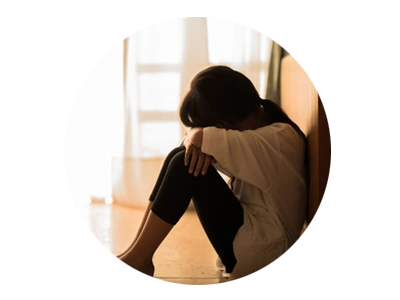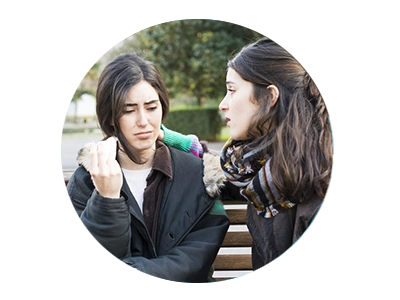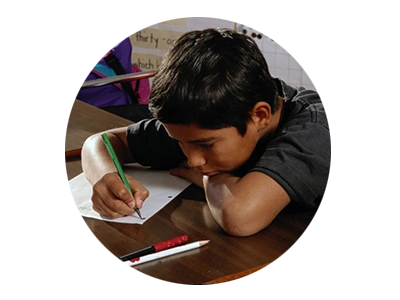If a child or teen tells you they have been sexually abused or you suspect a child is being abused, call 9-1-1 or child protective services. If you are concerned there may be abuse happening to a child or in a family, call child protective services or seek professional help.
If you are concerned that an adult has been assaulted or an adult discloses sexual abuse, remember this: stay calm, listen compassionately, offer emotional support and offer to connect them with professional support. Reporting to the police is the victim’s choice. However, visiting the hospital for an exam (i.e., rape kit) as soon as possible preserves vital evidence if and when the victim decides to report to police.
If you are concerned about warning signs or someone’s behavior, the best response will depend on the particular situation, especially if children are involved.
SUPPORTING VICTIMS
If a child or teen reports abuse, call 9-1-1 or child protective services for local assistance immediately. Be sure to get support for yourself from other trusted adults who are not involved directly with the abuse. The national contacts below are available for anyone seeking information and resources about sexual abuse. If you are not sure of the number to call, you can call the police or visit the Child Welfare Information Gateway for contact information.
HOW SHOULD YOU RESPOND?
If a child hints at or discloses sexual abuse, your reaction is very important and could affect how the child feels about themselves later. What you say is as important as what you don’t say. Research shows that having an adult who listens, believes and supports a child through the disclosure process is key to the child’s resiliency and leads to better mental health outcomes. An adult’s willingness to listen may also impact the child’s willingness to talk about sexual abuse in the future and during a possible criminal investigation.
- Stay calm. Use comforting language to reassure the child you care. Be aware of your facial expressions. If you appear shocked or angry, the child may assume your shock or anger is directed toward them and they may shut down and not want to talk about the abuse again.
- Listen carefully. Let the child tell what happened in their own words. Expect their history of abuse to be incomplete. Typically, more information comes out as time goes by. Young children in particular may not know the words to explain what happened. Do not fill in words or correct perceived mistakes or omissions. Be patient.
- Assure and reassure the child. Tell the child they did nothing wrong and that this is not their fault. Disclosing abuse is a good thing and talking to an adult is the right thing to do. Let the child know that you are a safe person to talk to and they can talk with you any time. Many children feel overwhelming shame and guilt, especially if the child is worried their disclosure will break up the family.
- Get medical and emotional help. Sexual abuse can cause internal injuries that you can’t see. A medical exam will ensure that the child is getting the help they need and may provide valuable evidence. There are sexual assault hotlines as well as child advocacy centers to call if you or the child or teen wants to talk to someone.
FOR MORE INFORMATION, VISIT THESE RESOURCES
- Information about how to report child sexual abuse from Child Welfare Information Gateway, as well as the responsibilities of mandated reporters on a state-by-state basis
- Childhelp National Child Abuse Hotline is available 24 hours a day with professional crisis counselors who offer crisis intervention, information and referrals to emergency, social service and support resources. 800-4-A-CHILD
- Toll-free helpline from Darkness to Light provides local U.S. information and resources about sexual abuse.
- Toll-free helpline from National Center for Missing & Exploited Children to report any information about missing or sexually exploited children to the police. Available 24/7 throughout the United States, Mexico and Canada. 800-THE-LOST, TDD: 800-826-7653; report incidents of online child exploitation on the CyberTipline
- Guidance on what to do when a child discloses sexual abuse from the National Child Traumatic Stress Network
- Guidelines for responding to child sexual abuse from the American Academy of Child & Adolescent Psychiatry
- National Children’s Alliance provides referrals to and support and accreditation for local children’s advocacy centers.
- Information on how to report abuse or misconduct inflicted on or by someone in the U.S. Olympic and Paralympic Movement, through the U.S. Center for SafeSport
There are many reactions that survivors of rape and sexual assault — or sexual abuse as a child — can experience. For traumatic events in general, it is important to know there is not one “standard” reaction to the trauma of sexual abuse. Some people respond immediately, while others have delayed reactions — sometimes months or even years later. Some have adverse effects for a long period of time, while others recover rather quickly. Reactions can change over time.
Some who have suffered from trauma find the energy to help others with the challenge of coping, only to later become discouraged or depressed. The impact of sexual abuse and assault will be different for each person and may occur on several levels — physically, emotionally, spiritually, economically and mentally.
Survivors may experience some of the following responses:
- Fear responses to reminders of the abuse or assault
- Pervading sense of anxiety, wondering whether it is possible to ever feel safe again
- Re-experiencing abuse/assault over and over again through flashbacks
- Problems concentrating and staying focused on the task at hand
- Guilt feelings
- Developing a negative self-image, feeling “dirty” inside or out
- Anger
- Depression
- Disruptions in close relationships
- Loss of interest in sex
WHAT SHOULD YOU DO?
There are several things you can do to help in the healing process and provide the support your friend, family or loved one may need.
- First and foremost, believe the survivor and accept what you hear without judgment. Recognize the person has experienced trauma and, as a family member or friend, it’s essential to listen and provide support without judgment.
- Respect the survivor’s right to decide whether or not to report the assault to the police or to accept a forensic medical exam.
- Reinforce to the survivor that it is not their fault. Sexual assault is never the survivor’s fault. It is important not to ask “why” questions, such as “Why were you in that area at that time?” that suggest that she or he is to blame for the assault.
- Understand that you cannot control how the survivor feels or “fix” the problem. Everyone reacts differently to sexual assault and heals at her or his own pace. It is important that you not assume you know how she or he is feeling — almost any reaction is possible and completely normal.
- Be a good listener and be patient. Let the survivor know you are there for her or him when she or he is ready to talk. When and if the survivor does want to talk about the abuse/assault, do not push for information. Let her or him tell you what she or he is comfortable sharing in her or his own time.
- Help the survivor regain a sense of control over her or his life. Support decisions and choices the survivor makes without passing judgment. Try not to tell the survivor what to do; instead, assist by presenting options and resources for her or him to make the decision that is right for her or him.
- Respect the survivor’s need for privacy. If the survivor needs to be alone, respect that decision.
- Do not suggest that the survivor “move on” with her or his life and forget about the rape, assault or abuse. The survivor needs the opportunity to work through the trauma of the assault and begin the healing process. There are both immediate and long-term effects of sexual abuse. The healing process will be different for every individual.
Remember to take care of yourself — seek support if you need it. If you take care of yourself, you will be better able to support the victim/survivor. Your local rape crisis center will have resources for friends and families who care for survivors.
FOR MORE INFORMATION, VISIT THESE RESOURCES
- Tips for talking with survivors of sexual assault from Rape, Abuse & Incest National Network, as well as 24/7 phone and online hotline with secure, anonymous, confidential crisis support for victims of sexual assault and their friends and families. 800-656-4673
- Information about sexual assault and rape from the U.S. Department of Health and Human Services, Office on Women’s Health
- Online helpline, chat and phone helpline from National Center for Victims of Crime
- Support and resources for male victims of sexual assault from MaleSurvivor
- Helpline for male victims of sexual assault from 1in6
- Resources, materials and other information from the National Sexual Violence Resource Center
If you have just been sexually assaulted, here are some suggestions:
- Get to a place where you feel safe.
- Know that the assault is not your fault.
- Reach out for support. Call someone you trust, such as a friend or a family member. You are not alone; there are people who can give you the support you need.
- Call RAINN’s National Sexual Assault Hotline at 800-656-HOPE. Your call is free and is anonymous and confidential and you will be directly connected to the closest participating rape crisis center in your area.
- It is important to seek medical attention as soon as possible. As an adult, you can choose not to have a medical and/or a forensic exam. Medical care is important to address any injuries you may have, to collect evidence and to protect against sexually transmitted diseases and pregnancy.
- Call 9-1-1 and report the incident to police. Reporting the incident to police as soon as possible gives you the best chance at holding the perpetrator accountable.
All victims of sexual assault or abuse should be treated with dignity and respect and not be judged based on race, age, class, sex, ability/disability or sexual orientation. All victims should be considered victims of sexual assault, regardless of the offender’s relationship to them.
If you are over 18, you have the right to —
- Have medical care/a medical examination.
- Report the assault to the police.
- Privacy regarding the sexual assault, your sexual orientation, sexual history, medical history (including HIV status) and mental health history.
- Have confidential conversations with a sexual assault counselor/advocate.
- Have a sexual assault counselor/advocate accompany you to medical, law enforcement and legal proceedings.
- Ask questions and get answers regarding any tests, exams, medications, treatments or police reports.
When reporting a sexual assault to the police —
- Try not to bathe, shower, change your clothes, eat, drink, smoke, gargle or urinate before the exam.
- Seek medical attention for an exam and evidence collection as soon as possible after the assault.
- Bring a change of clothes with you.
- Work with a sexual assault counselor/advocate during your medical exam.
If you are not an adult (and this may change from state to state), then your disclosure may trigger a report to the authorities. The purpose of this report is to protect you and others, and to get help for you and your family. More information can be found in the resources below.
As a survivor of sexual assault, you may experience some or all of these feelings —
- Anger, fear, guilt
- Loss of control, powerlessness, embarrassment
- Depression, isolation, denial
- Shame, disbelief, self-blame, emotional shock
This complex set of feelings is common and every survivor of sexual assault responds differently. Remember, you are not alone, you are not to blame for what happened and there are people who are there to help.
RESOURCES
The national contacts below are available for anyone seeking information and resources about sexual abuse. In an emergency, dial 9-1-1 for local assistance immediately.
- Rape, Abuse & Incest National Network
Phone and online hotlines are available 24/7, and offer secure, anonymous, confidential crisis support for victims of sexual assault and their friends and families. 800-656-4673 (toll-free National Sexual Assault Hotline) - National Center for Victims of Crime
Phone and online helplines provide supportive counseling, practical information about crime and victimization and referrals to local community resources, as well as advocacy in the criminal justice and social service systems. 855-4-VICTIM - Office on Women’s Health
Information on sexual assault, how to respond and how to prevent it, including resources for victims and survivors. - MaleSurvivor
Support and resources for male victims of sexual assault, including therapist referrals and peer support. - 1in6
Helpline for male victims of sexual assault, as well as online peer support groups. - National Sexual Violence Resource Center
Resources, materials and other information to help individuals and organizations prevent and respond to sexual violence. 717-909-0710; toll-free: 877-739-3895; TDD: 717-909-0715
ADDRESSING ABUSIVE BEHAVIORS
If you see warning signs of abusive behavior by a child or teen, call 9-1-1 or child protective services and report your concerns. Interfamilial sexual abuse can leave you confused, angry or alone. Know that many other families have endured this experience and have gone on to live healthy and happy lives.
If you see warning signs of sexually abusive behaviors but aren’t sure if you have enough information to make a report, you can call child protective services anonymously. If you don’t have enough information to report or you just have a gut feeling, don’t give up. You can choose to seek professional advice and/or start with the resources below. Here are some options:
- Most importantly, stay calm and think about what you want to do.
- If you are unsure about age-appropriate behaviors, take the time to learn what is normal for this child/teen and this age.
- Seek professional help from your physician or a therapist who specializes in child sexual abuse and see resources below.
- If the child or teen is someone in your care, talk with the child/teen about your concerns. Think about what you want to say and practice the words so that you are comfortable with the topic.
- When you do talk to the child or teen, reassure your child/teen that you care about them and that you are open to listening to what is happening in their life.
- Make sure that you take care of yourself through the process — including your own safety — so that you’ll be better equipped to handle the situation.
Remember to reach out for help and that you aren’t alone. One of the biggest factors of resiliency in a child or teen is having someone who cares about them and is willing to go through difficult experiences with them. Your involvement can make a huge difference in the lives of everyone involved.
FOR MORE INFORMATION, VISIT THESE RESOURCES
- Support for parents of a child or teen with sexual behavior problems from RALIANCE
- Fact sheet about coping with sexual behavior problems in children from the National Child Traumatic Stress Network (PDF)
- Tip sheet on age-appropriate sexual behavior for children and teens from Stop It Now!
- Overview of how to respond to children and youth with sexual behavior problems from Stop It Now!
- List of mandatory reporters of child abuse and neglect from the Child Welfare Information Gateway
If you suspect an adult is sexually abusing a child or teen or someone discloses sexually abusive behavior toward a child or teen, call 9-1-1 or child protective services.
If you suspect that an adult is sexually assaulting another adult, and you are in a position to do so, offer support to the adult who is being harmed.
If you see warning signs of sexually abusive behaviors in someone you care about, but you don’t have any evidence of sexual abuse, consider the available options. Doing nothing might be easier, but it may also mean that someone might be harmed. Here are some options:
- Most importantly, stay calm, consider what is safe for you to do and think about who else you can safely talk with about your concerns.
- Consider writing down your concerns and the specific behaviors that you have observed with details about when, where and any other important details.
- Consider talking with that adult about his or her behaviors. If you do say something, it lets them know that someone is watching and it may also let them know that you are someone they can talk to about getting help — hopefully before anyone is harmed. For information about how to have that conversation, contact Stop It Now!
- Seek out an ally or professional help, someone to support you during this time.
- Explore the resources that are available to you and to the person you care about.
Remember to trust your gut and do not give up. If there are others who may be helpful, consider involving them as well. If more individuals are watching and also offering their support, the more likely you are to create a safer situation for everyone.
FOR MORE INFORMATION, VISIT THESE RESOURCES
- Let’s Talk brochure from Stop It Now! offers suggestions about talking with an adult about your concerns for their behaviors.
- Website Helpline from Stop It Now! offers a confidential place to talk about your concerns. Or call 888-PREVENT.
- Safer Society Press offers workbooks and other resources on the treatment of sexual abuse perpetrators and victims.







